The Importance of Saving Water
Water is one of the most vital resources on our planet, yet it is rapidly depleting due to population growth, industrialization, and climate change. Conserving water is not just an environmental necessity; it is a responsibility we all share. The importance of saving water extends beyond personal consumption to ensuring that future generations have access to clean, safe water. This is why wastewater treatment plays a critical role in water conservation, recycling water for reuse and reducing the burden on natural water sources.
Understanding Wastewater and Its Treatment
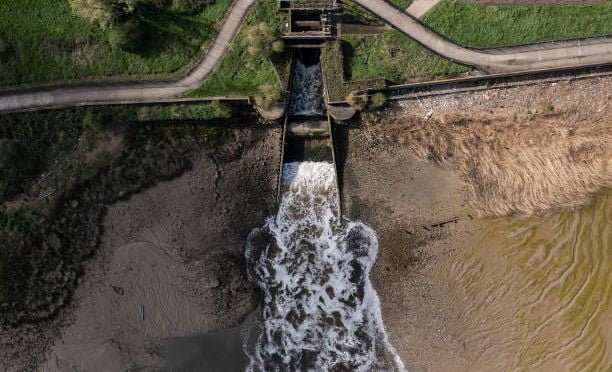
Wastewater is any water that has been adversely affected by human use, whether from domestic, industrial, or agricultural activities. It includes everything from sewage and runoff to process water used in factories. Treating this water is essential to remove contaminants, ensuring it can be safely returned to the environment or reused. Wastewater treatment plants are engineered facilities designed to treat sewage, industrial effluent, and other forms of wastewater, making it safe for discharge or reuse.
Why Wastewater Treatment is Important
The treatment of wastewater is critical to protect both human health and the environment. Without proper treatment, wastewater can contaminate drinking water sources, harm aquatic ecosystems, and lead to the spread of waterborne diseases. Effective wastewater treatment ensures that harmful substances are removed, safeguarding public health and preserving the natural environment. Moreover, in a world facing water scarcity, treated wastewater can be reused for irrigation, industrial processes, and even potable water, contributing significantly to sustainable water management.
Comparative Section: Sewage Treatment vs. Non-Treatment
To truly understand the importance of sewage treatment plants (STPs), it’s crucial to compare the outcomes of having an STP versus not having one. The impact on health, the environment, and the economy is significant. Below, we compare the advantages of treated sewage with the consequences of untreated sewage:
Untreated Sewage: Consequences
- Health Risks:
- Waterborne diseases such as cholera, typhoid, dysentery, and hepatitis due to pathogens in untreated wastewater.
- Contaminated drinking water that affects communities and leads to epidemics.
- Environmental Damage:
- Pollution of water bodies: Rivers, lakes, and oceans get contaminated with harmful chemicals, heavy metals, and pathogens, disrupting ecosystems.
- Biodiversity loss: The pollution from untreated sewage reduces oxygen levels in water, killing aquatic life and disrupting the food chain.
- Flooding:
- Overflow of untreated sewage during heavy rainfall leads to local flooding, which contaminates streets and water sources.
- Soil Contamination:
- Sewage sludge leaching into the ground can cause soil contamination, rendering land unsuitable for agriculture.
- Odor and Aesthetic Impact:
- Untreated sewage results in foul smells and poor aesthetics in residential or urban areas, creating an unpleasant living environment.
Treated Sewage: Benefits
- Health Protection:
- Prevention of waterborne diseases: Clean, treated water ensures that pathogens are eliminated, reducing the risk of illnesses.
- Safe for irrigation and recycling for non-potable uses like industrial cooling or landscape irrigation.
- Environmental Sustainability:
- Restores water quality: Treated sewage is returned to natural water bodies in a clean form, preserving ecosystems and aquatic life.
- Reduces pollution levels in water sources, promoting the health of rivers, lakes, and oceans.
- Flood Control:
- Proper treatment facilities prevent overflows by handling large volumes of sewage, reducing the risk of local flooding and contamination during storms.
- Soil Preservation:
- Treated sewage can be safely used for irrigation, ensuring no harmful chemicals or pathogens are introduced into the soil.
- Economic Benefits:
- Recycled treated water can be reused in industrial processes, reducing the demand for freshwater.
- Potential for energy generation from wastewater treatment (biogas production, for example).
Comparison Table: Sewage Treatment vs. Non-Treatment
Aspect | Treated Sewage | Untreated Sewage |
Health Impact | Eliminates harmful pathogens; reduces disease risk | Spreads waterborne diseases (cholera, typhoid) |
Water Quality | Restores water quality, safe for consumption | Pollutes rivers, lakes, and oceans |
Environmental Impact | Protects aquatic life and ecosystems | Damages ecosystems; reduces oxygen levels in water |
Flooding Risk | Reduces flood risks by controlling overflow | Increases flooding during storms |
Soil Contamination | No risk to soil; safe for agriculture | Soil contamination from sewage sludge |
Odor & Aesthetics | Clean and odor-free environment | Foul smell; unsightly appearance |
Economic Impact | Enables water recycling, cost-saving for industries | Increased cost of water treatment and pollution clean-up |
Installing and maintaining sewage treatment plants is vital to prevent severe environmental and health consequences. It ensures clean water, reduces pollution, and promotes sustainable living. On the other hand, the lack of sewage treatment can lead to public health crises, environmental degradation, and economic losses. Therefore, investing in STPs is essential for the well-being of society and the planet, highlighting the importance of sewage treatment plants.
The Importance of Sewage Treatment Plants (STP)
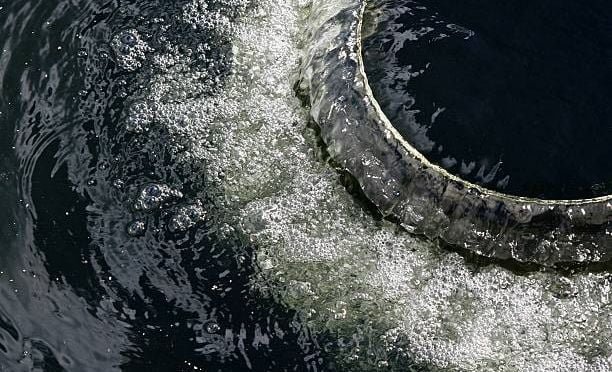
Sewage Treatment Plants (STPs) are specialized wastewater treatment systems designed to treat sewage and other forms of wastewater. In today’s context, the importance of STPs cannot be overstated. With urbanization and industrial growth, the volume of sewage and wastewater generated has increased exponentially. STPs play a pivotal role in managing this waste, ensuring that it does not pose a threat to public health or the environment. By treating sewage and converting it into safe, reusable water, STPs help mitigate water scarcity and reduce the environmental footprint of human activities.
The Cost of a Wastewater Treatment Plant in India: Key Factors Affecting Pricing
The cost of a wastewater treatment plant in India can vary significantly depending on several factors, such as the size of the plant, the type of technology used, the treatment capacity, and the complexity of the installation. Below are some rough estimates to give you an idea:
1. Small-Scale Wastewater Treatment Plants
- Capacity: 1,000 to 10,000 liters per day (LPD)
- Cost Estimate: ₹2,00,000 to ₹10,00,000
- Usage: Ideal for small residential complexes, small industries, or office buildings.
- Technology: Simple treatment systems like septic tanks, trickling filters, or packed bed reactors.
2. Medium-Scale Wastewater Treatment Plants
- Capacity: 10,000 to 50,000 liters per day (LPD)
- Cost Estimate: ₹10,00,000 to ₹50,00,000
- Usage: Suitable for larger residential buildings, hotels, small to medium industries.
- Technology: More advanced systems like Sewage Treatment Plants (STPs), Activated Sludge Process (ASP), or Sequencing Batch Reactors (SBR).
3. Large-Scale Wastewater Treatment Plants
- Capacity: 50,000 to 500,000 liters per day (LPD) or more
- Cost Estimate: ₹50,00,000 to ₹2,00,00,000 (or higher)
- Usage: Required for large industrial setups, townships, commercial complexes, or municipalities.
- Technology: Advanced systems like Membrane Bioreactors (MBR), Reverse Osmosis (RO), or Multi-Stage Filtration Systems.
4. Very Large or Industrial-Scale Plants
- Capacity: 1 million liters per day (MLD) or more
- Cost Estimate: ₹2,00,00,000 to ₹10,00,00,000+
- Usage: Large-scale industries, municipal wastewater treatment plants, or industries with high water treatment needs (e.g., food processing, pharmaceuticals).
- Technology: Highly specialized systems, including Zero Liquid Discharge (ZLD) systems and Effluent Treatment Plants (ETPs).
Factors Influencing Cost:
- Technology: Advanced technologies like Membrane Bioreactors (MBR), Reverse Osmosis (RO), or UV disinfection typically cost more upfront but provide better efficiency and quality of treatment.
- Size and Capacity: The higher the capacity, the higher the cost. A larger plant requires more infrastructure, labor, and resources.
- Location: Installation in remote or difficult-to-access areas may increase transportation and labor costs.
- Customization: A customized plant for specific wastewater types or industries (e.g., food processing, pharmaceuticals) can increase costs due to specialized treatment requirements.
- Operational Costs: These include energy consumption, chemical use, labor, and maintenance. Highly efficient systems may cost more initially but result in lower operational expenses over time.
Additional Costs:
- Installation Charges: Civil work, piping, and electrical setup.
- Annual Maintenance Contracts (AMC): Typically 5-10% of the capital cost per year.
- Upgrades: Periodic upgrades may be required to ensure the system continues to meet environmental standards.
The cost of a wastewater treatment plant in India can range anywhere from ₹2,00,000 for small-scale units to ₹10 crore or more for large-scale, industrial setups. It’s essential to consult with a supplier or manufacturer to get a more accurate estimate based on the specific requirements and capacity of your wastewater treatment needs.
The Importance of Wastewater Treatment: Safeguarding Health, Environment, and Economy
Water is one of our planet’s most vital resources, and as populations grow and industries expand, the demand for clean water has skyrocketed. Unfortunately, with industrial growth, agricultural development, and urbanization, the amount of wastewater produced is also increasing exponentially. That’s where wastewater treatment becomes a critical solution.
The Growing Need for Wastewater Treatment
As global populations surge, so does the demand for clean water. Today, the world faces a significant water crisis, exacerbated by rapid urbanization and industrialization. As freshwater resources become scarcer, treating and reusing wastewater has emerged as a key solution to addressing the growing need for water conservation.
Wastewater treatment involves the process of removing contaminants from wastewater to make it safe for reuse or safe discharge into the environment. Whether it’s for drinking, agricultural irrigation, industrial processes, or even recreational water bodies, wastewater treatment is pivotal for sustainable water management.
2. Health & Environmental Impact: Why Untreated Wastewater is Dangerous
Health Risks: Untreated wastewater poses serious health risks due to the presence of harmful pathogens, bacteria, and viruses. These contaminants can lead to a variety of waterborne diseases, including cholera, typhoid, and dysentery. This is especially true in regions where untreated sewage is dumped directly into water bodies, affecting local communities.
Environmental Damage: The environmental toll of untreated wastewater is devastating. When wastewater is released into rivers, lakes, and oceans without proper treatment, it introduces a toxic mix of chemicals, heavy metals, and pathogens. This pollutes water sources, harms aquatic life, disrupts ecosystems, and reduces biodiversity. Moreover, untreated wastewater can oxygen-deplete water bodies, making them inhospitable to aquatic organisms.
3. Technological Innovations: Modern Solutions for Wastewater Treatment
Over the years, there have been significant advancements in wastewater treatment technologies. These innovations have made the treatment process more efficient, cost-effective, and environmentally friendly.
- Membrane Bioreactors (MBR): This cutting-edge technology combines biological treatment and membrane filtration to effectively purify wastewater. MBR offers high-quality effluent, ideal for reuse in industries and agriculture.
- Reverse Osmosis (RO): RO systems use pressure to push water through semi-permeable membranes, filtering out contaminants and producing purified water. This technology is highly effective for drinking water treatment and wastewater recycling.
- Ultraviolet (UV) Disinfection: UV treatment uses ultraviolet light to eliminate pathogens from wastewater. It’s an eco-friendly and chemical-free solution that is becoming increasingly popular in municipal and industrial applications.
These technologies ensure that treated wastewater meets stringent health and environmental standards, making it suitable for recycling and reuse in various sectors.
4. Economic Benefits: The Value of Wastewater Treatment
While installing wastewater treatment systems requires an initial investment, the long-term economic benefits far outweigh the costs.
- Cost Savings: Wastewater treatment enables industries and municipalities to reuse water, reducing their reliance on freshwater sources. By treating wastewater, industries save on water procurement costs, making it a cost-effective solution in the long run.
- Energy Generation: Modern wastewater treatment plants can generate renewable energy through processes like biogas production from sludge. This energy can be used to power treatment facilities or even sold to the grid, creating a sustainable energy source.
- Industrial Uses: Treated wastewater can be used in industrial cooling, agricultural irrigation, and even in some manufacturing processes, helping industries conserve freshwater and reduce operational costs.
5. Sustainability and SDGs: Achieving Global Water Goals
Wastewater treatment plays a pivotal role in achieving the Sustainable Development Goals (SDGs) set by the United Nations. Specifically, SDG 6, which focuses on clean water and sanitation, is directly supported by wastewater treatment practices.
By investing in wastewater treatment, nations and industries contribute to:
- Reducing water pollution by removing harmful substances from wastewater.
- Ensuring access to clean water for all, especially in water-scarce regions.
- Promoting sustainable water management practices that help reduce dependency on freshwater sources.
Wastewater treatment helps move us closer to a sustainable future, ensuring that water resources are protected for future generations.
6. Circular Economy: Wastewater as a Resource
In a circular economy, waste products are reused and recycled to create a more sustainable system. Wastewater is no exception. By treating and recycling wastewater, we close the water loop and make it a resource rather than a waste product.
- Recycling Wastewater: Treated wastewater can be reused for irrigation, industrial cooling, and other non-potable purposes. This reduces the demand for freshwater and ensures a sustainable water supply for various sectors.
- Zero Liquid Discharge (ZLD): In some industries, ZLD systems are used to treat wastewater to a point where almost no liquid waste is discharged. This system allows industries to recycle and reuse all of their wastewater, making them more sustainable and reducing their environmental footprint.
7. Real-World Case Studies: Proven Impact of Wastewater Treatment
Around the world, wastewater treatment has proven its value in improving public health, safeguarding the environment, and generating economic benefits. Here are a few success stories:
- Singapore: Singapore has pioneered the use of advanced wastewater treatment technologies, transforming wastewater into high-quality recycled water. Their NEWater program has been so successful that recycled water now meets 40% of the city-state’s water demand.
- Israel: Israel is one of the leading countries in wastewater treatment and reuse, with over 80% of its treated wastewater being reused for irrigation. This has helped Israel manage its water scarcity challenges and ensure sustainable agricultural practices.
These examples show how wastewater treatment can provide tangible benefits, not just in terms of water conservation, but also in terms of health, environment, and economic growth.
8. Conclusion: The Imperative of Wastewater Treatment for a Sustainable Future
As we face mounting water scarcity issues, wastewater treatment has become an essential tool for water conservation and environmental protection. Proper treatment ensures the safe return of water to ecosystems, reduces the risks of waterborne diseases, and promotes sustainable water use across industries and communities.
Investing in wastewater treatment plants is not just a matter of regulatory compliance—it’s a necessity for the well-being of people, the planet, and the economy. By embracing wastewater treatment, we can create a more sustainable, healthier, and economically viable future for generations to come.
About SUSBIO: A Pioneer in Wastewater Treatment Solutions
SUSBIO has established itself as a leader in the wastewater treatment industry in India, known for delivering cutting-edge solutions that address the complex challenges of modern waste management. The company’s mission is to provide sustainable, high-performance wastewater treatment systems that contribute to environmental conservation while meeting the diverse needs of residential, commercial, and industrial sectors.
SUSBIO’s journey began with a clear vision: to revolutionize wastewater treatment by offering advanced, prefabricated solutions that are both efficient and easy to implement. Over the years, the company has invested heavily in research and development, resulting in the creation of innovative products like SUSBIO ECOTREAT. This flagship product is a testament to SUSBIO’s commitment to quality and sustainability, offering a robust and versatile solution that can handle a wide range of wastewater treatment challenges.
SUSBIO’s strength lies in its ability to combine state-of-the-art technology with practical, user-friendly designs. Each of their wastewater treatment plants, including SUSBIO ECOTREAT, is engineered to deliver maximum efficiency with minimal environmental impact. The company’s focus on quality extends beyond its products to its customer service, offering comprehensive support from the initial consultation to post-installation maintenance. This commitment to excellence has earned SUSBIO a reputation as a trusted and reliable partner in the wastewater treatment industry.
Why SUSBIO ECOTREAT Stands Out Among Indian Wastewater Treatment Plant Manufacturers
Industry Applications of Our Wastewater Treatment Plants
We cater to a diverse range of industrial and residential applications. As a top wastewater treatment plant manufacturer in India, we design custom solutions for:
Residential Societies: Compact STPs for apartments, villas, and gated communities with water reuse options.
Textile & Dyeing Units: Effluent treatment plants (ETPs) with colour, dye, and heavy metal removal.
Breweries & Distilleries: High-load BOD/COD treatment with anaerobic reactors.
Food Processing Units: Odour-free, grease and FOG removal STPs with hygienic discharge.
Hospitals & Pharma: MBR-based STPs for pathogen and pharmaceutical residue elimination.
Global Quality Standards We Follow
To maintain our position as a leading wastewater treatment plant exporter from India, all SUSBIO systems meet or exceed international benchmarks:
-
ISO 9001 & ISO 14001 Certified
-
CE Certification for export equipment
-
CPCB & EPC approvals for Indian use
-
Marine-grade containerization and anti-corrosive coatings
-
Optional UL/CSA components for North America
Types of Wastewater Treatment Plants We
Manufacture
We provide a wide range of STP/ETP systems tailored for different industries:
SBR (Sequential Batch Reactor)
Ideal for industrial parks and large communities needing time-flexible treatment.
MBR (Membrane Bioreactor)
High-efficiency system for medical, hospital, and pharmaceutical applications requiring pathogen removal.
MBBR (Moving Bed Biofilm Reactor)
Compact and scalable for malls, commercial hubs, and apartment buildings.
ASP (Activated Sludge Process)
Proven and cost-effective solution for municipal wastewater management projects.
Why SUSBIO ECOTREAT is the Best Choice for Wastewater Treatment
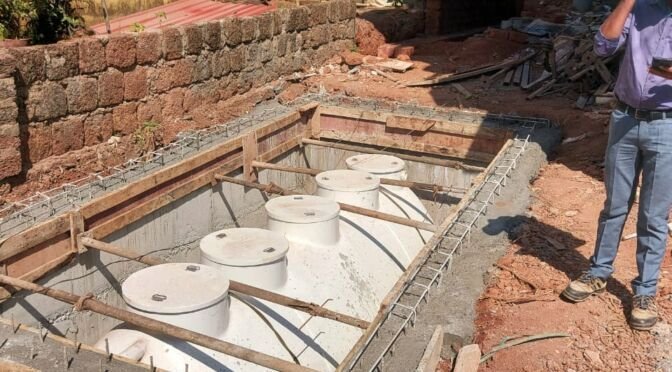
SUSBIO ECOTREAT has been meticulously designed to address the unique challenges of wastewater treatment in various settings. What sets SUSBIO ECOTREAT apart is its innovative dual-treatment process, which combines both biological and chemical methods to ensure thorough purification of wastewater. This not only enhances the efficiency of the treatment process but also ensures that the treated water meets stringent quality standards, making it safe for reuse or discharge.
The system’s energy-efficient design is another key feature, allowing for significant cost savings while maintaining optimal performance. SUSBIO ECOTREAT is also highly adaptable, capable of handling various types of wastewater, whether from residential communities, commercial establishments, or industrial facilities. Its compact, prefabricated design makes it an ideal choice for locations where space is limited or where rapid deployment is required.
Built with high-quality, durable materials, SUSBIO ECOTREAT is designed to withstand the test of time, even in demanding environments. This ensures that clients receive a long-lasting solution that requires minimal maintenance, reducing the total cost of ownership. Furthermore, SUSBIO’s in-house installation and service teams provide unmatched technical support, ensuring that each system operates smoothly and efficiently.
SUSBIO ECOTREAT stands out as the best choice for wastewater treatment for several reasons:
Innovative Design: SUSBIO ECOTREAT features a compact, prefabricated design that requires minimal space and is easy to transport and install.
Dual-Treatment Process: The system utilizes a dual-treatment process, combining biological and chemical treatment methods to ensure high-efficiency wastewater treatment.
Energy Efficiency: SUSBIO ECOTREAT is designed to be energy-efficient, reducing operational costs while ensuring effective treatment.
Versatility: The system is adaptable to various wastewater treatment needs, making it suitable for residential, commercial, and industrial applications.
Robust Construction: Built with high-quality materials, SUSBIO ECOTREAT is designed for long-term durability, even in harsh environmental conditions.
Sustainable Solution: SUSBIO ECOTREAT contributes to water conservation by enabling the reuse of treated wastewater, aligning with global sustainability goals.
Conclusion
In today’s world, where water scarcity and environmental degradation are pressing concerns, the need for effective wastewater treatment solutions is more critical than ever. SUSBIO ECOTREAT stands out as a premier choice, offering a perfect blend of innovation, efficiency, and sustainability. As a leading sewage treatment manufacturer and supplier in India, SUSBIO is committed to helping communities and industries manage their wastewater responsibly, ensuring a cleaner and healthier environment for all.
SUSBIO’s expertise, coupled with its dedication to quality and customer satisfaction, makes it the go-to partner for all wastewater treatment needs. Whether you are looking for a reliable solution for domestic sewage treatment, industrial wastewater management, or effluent treatment, SUSBIO ECOTREAT delivers unparalleled performance. With its robust design, energy-efficient operation, and superior treatment capabilities, SUSBIO ECOTREAT not only addresses today’s wastewater challenges but also contributes to a sustainable future.


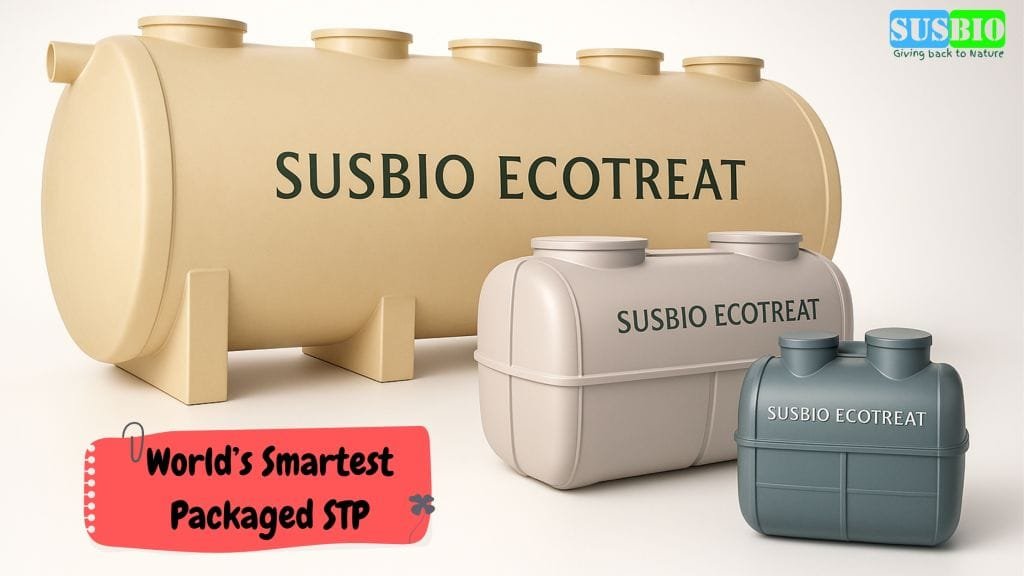
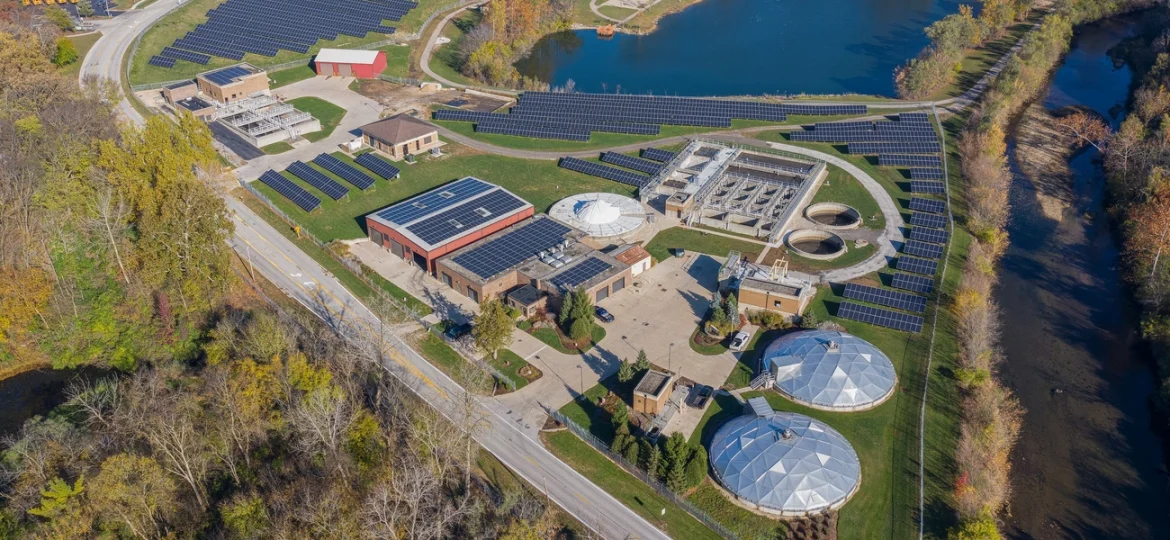
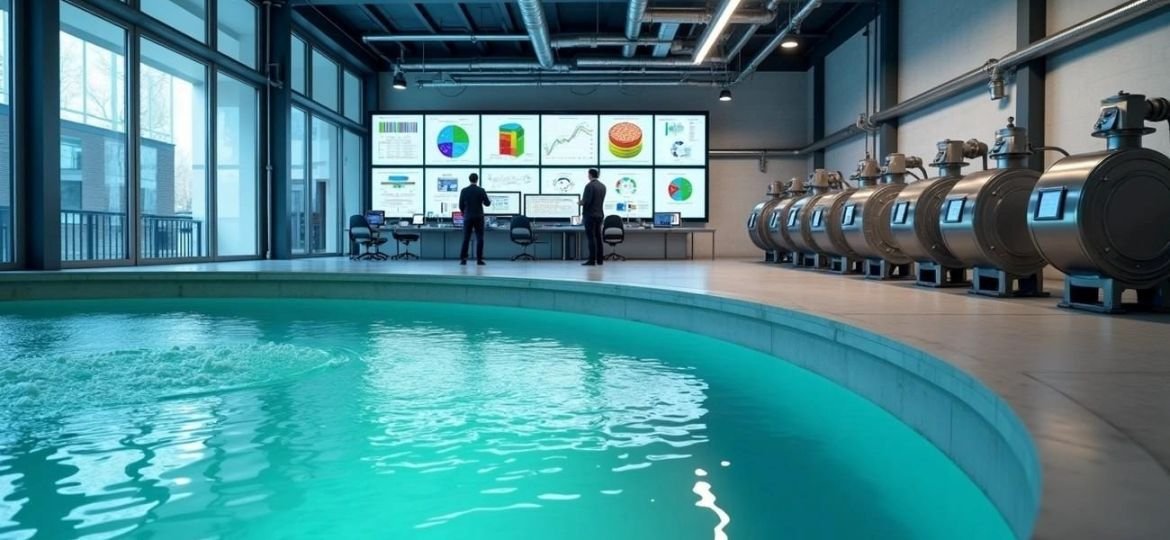


4 Comments
[…] 0 By Akshat Tyagi Latest Blogs August 22, […]
[…] The SUSBIO ECOTREAT sewage treatment plant is a game-changer in the industry. Built from high-quality fiber-reinforced plastic, it ensures durability and longevity. This prefabricated sewage treatment plant integrates advanced automation and smart technology, allowing it to operate with minimal human intervention and very low energy consumption. By using a dual-treatment process that combines anaerobic and aerobic methods, the SUSBIO ECOTREAT sewage treatment plant guarantees the highest quality wastewater treatment, effectively removing pollutants and contaminants while producing water that can be safely reused. […]
[…] Among the leading providers of packaged sewage treatment solutions, SUSBIO stands out with its innovative SUSBIO ECOTREAT system. Recognized as the best-packaged sewage treatment plant in India, SUSBIO ECOTREAT combines advanced technology, superior design, and unmatched efficiency to deliver top-notch wastewater treatment. […]
[…] treatment plant designed to provide an efficient, reliable, and affordable solution for wastewater treatment. Whether for residential complexes, commercial establishments, or industrial facilities, SUSBIO […]